The internet is an excellent resource for information, but what if you wanted to make your own website? You would need to hire a coder or learn to write code yourself. What is a coder, you ask? There are different coding professions like software developer, mobile developer, computer programmer, etc., but the Lucid Coder website focuses on web developers, which I will discuss today.
What is a web developer, and what do they do?
Web developers should not be confused with computer programmers or software developers. A computer programmer is a person who writes computer programs, which are a series of instructions that tell a computer what to do. The work of a software developer involves working with computer code, designing, building, testing, and maintaining the source code of computer software.
A web developer is a person who codes websites and web applications using different programming languages and web technologies. Web developers might also need to maintain websites, troubleshoot errors, and fix code. These days, it’s not enough to know how to code; you also need to be familiar with web design principles and standards to create beautiful and functional sites.
The Three Web Developer Specialties
Web developers are broken into three specialties: front-end, back-end, and full-stack. Each requires a different skill set. Let’s explore what each type does.
Front-End Developer
A Front-End Developer is a person who specializes in what you see on the screen (the front-end) as opposed to what happens behind the scenes. They make websites more interactive by adding graphics, colors, and other features that enhance people’s experience when visiting your site. HTML, CSS, and JavaScript are client-side scripting languages used in front-end development.
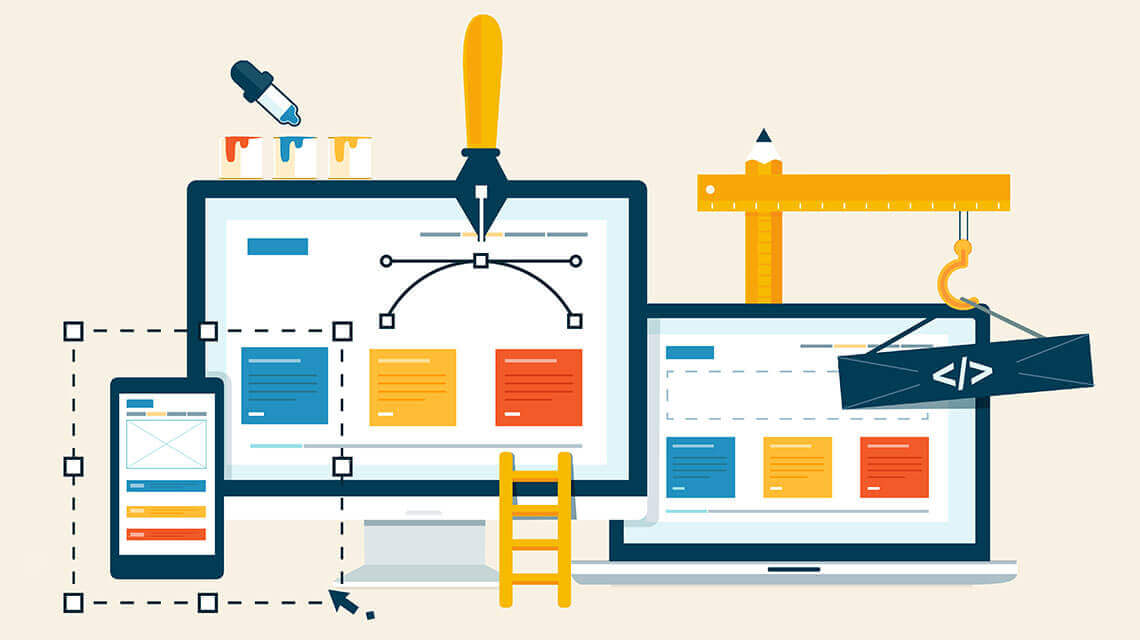
This type of web developer has to write code and should also have some web design skills. You don’t need to be a Photoshop expert, but making your website look nice and user-friendly is essential. It would help if you had a basic understanding of using design tools such as Adobe Photoshop or Illustrator and understand what makes a good website layout.
Back-End Developer
A Back-End Developer works with code that is not visible to the user (the back-end). This typically includes things like databases (MySQL, Mongo), web servers (Apache, Nginx), and server-side scripting languages (PHP, Node.js, Java).
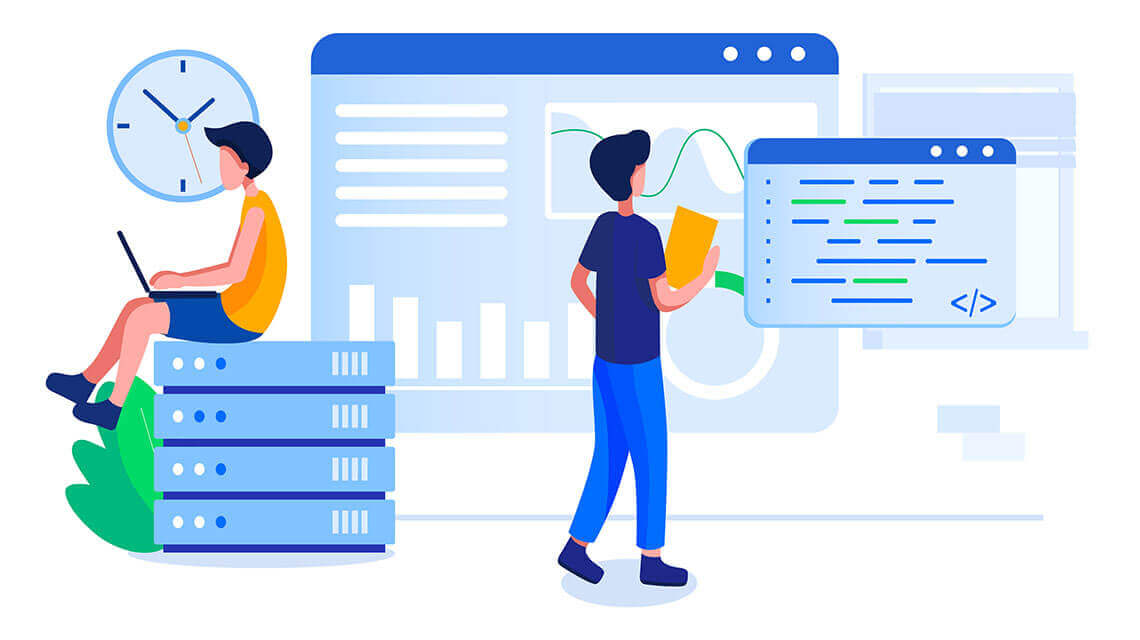
This type of web developer is responsible for what happens after someone clicks “submit” on a form – from storing information to sending e-mails via an application programming interface (API). They usually have a strong understanding of algorithms, software design principles, and web services.
Full-Stack Developer
Full-Stack Developers are what one might call a “jack of all trades.” They have skills in both front-end and back-end development. This means they can work on the whole website or app instead of just a specific area. They are involved in the entire development process and see a project from start to finish.
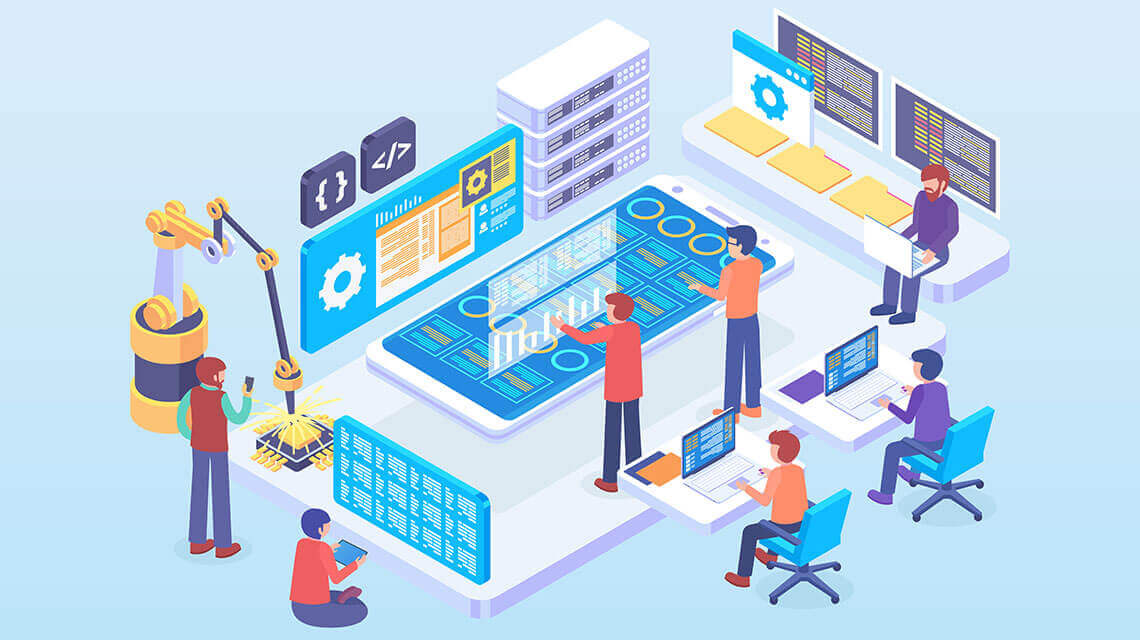
This type of web developer is in high demand because most companies want someone who can wear many hats. They are versatile and can quickly adapt to new technologies. However, this also means they might not be experts in any particular area.
The 7 Skills of a Successful Web Developer
To be a successful web developer, it is essential to have the right skills. This includes coding in different programming languages, understanding web design principles, and having some knowledge in back-end development. Furthermore, it is helpful to be familiar with various web hosting environments and providers.
What skills do you need to become a good web developer? Let’s take a closer look at what it takes!
Skill #1: Web developers must be competent in several programming languages
First and foremost, web developers need to be able to code. This may seem like an obvious requirement, but you must understand how coding works to develop websites. You don’t need to be an expert coder or have a bachelor’s degree in computer science, but you should at least know the basics of a few programming languages. Some examples are below:
Front-end programming languages
To be considered a Front-End Developer, you should be proficient in HTML, CSS, and JavaScript. These are the most common client-side scripting languages to create dynamic user interfaces.
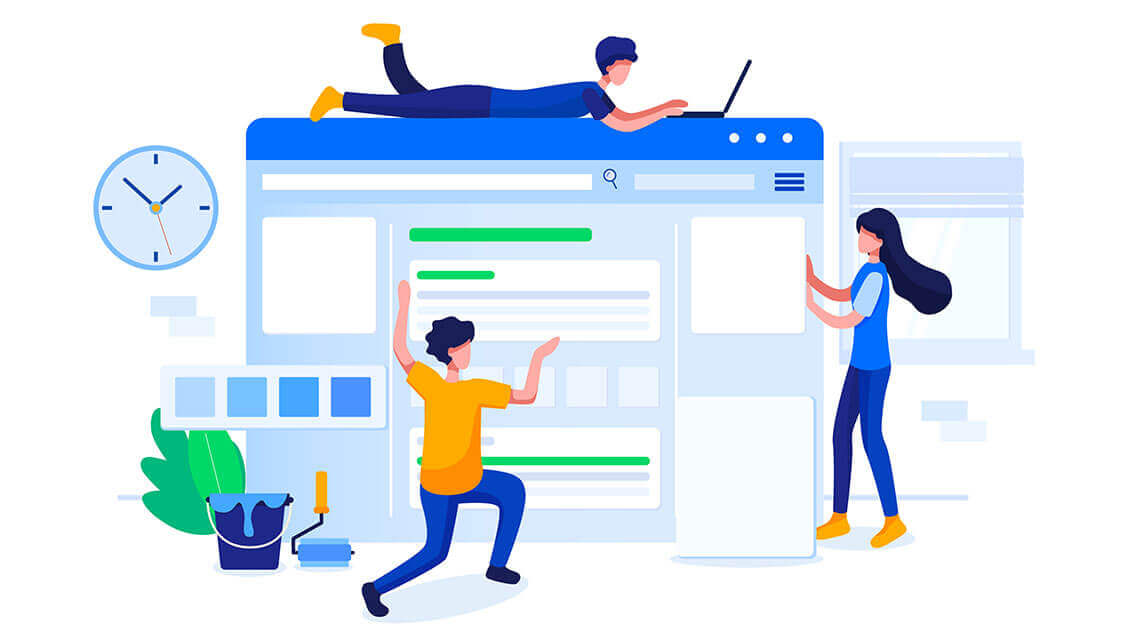
HTML: HyperText Markup Language is used to create the structure and layout. It is a fundamental skill that every web developer should know. With HTML, you can create headings, paragraphs, images, and other elements on a web page.
CSS: CSS stands for Cascading Style Sheets and is what web developers use to style the look and feel of a website. CSS rules control the colors, fonts, size, and spacing of text on a web page. Styles can also apply to other elements like images or whole pages themselves! If you are just getting started with web development, you must know what styles are available to use them appropriately.
JavaScript: JavaScript is a programming language used to create interactive elements on a website. This can include things like drop-down menus, modal boxes, and slider bars. JavaScript is also used to create animations and effects on a website. If you want to become a Front-End Developer, you must learn JavaScript.
Back-end programming languages
Back-End Developers and Full-Stack Developers use back-end programming languages to create the functionality of a website or application. Front-End Developers do not as commonly use these languages, but it is vital to have some experience in this area.
PHP: PHP is a server-side scripting language used to create dynamic websites. PHP code runs on a web server, retrieves data from a database, and then displays it on the page. This makes PHP an ideal language for developing web applications.
Node.js: Node.js is another server-side scripting language that uses JavaScript. Node.js is unique because it allows you to use JavaScript on the back-end and front-end. This makes development faster and easier since you only need to learn one language!
Java: Java is a programming language used for developing desktop applications, mobile apps, and websites. Java is an object-oriented programming language, which means objects are used to design applications and systems. Java is a popular language for back-end development as it can be run on various platforms.
Python: Python is a high-level programming language that is easy to learn and read. It is often used in data science and machine learning projects. Python is also used for web development, making it a versatile language to learn.
Skill #2: Web developers should be familiar with different web development libraries and frameworks
Libraries and frameworks are reusable code snippets that make development easier and faster. Libraries are collections of code that can be used in your applications, while frameworks are pre-built applications that you can use to speed up development.

Front-End Libraries
jQuery: jQuery is a JavaScript library created by John Resig in 2006. It was designed to make it easier for developers to work with JavaScript. jQuery includes features like animation, event handling, and Ajax interactions. It is popular among web developers and is included in many front-end frameworks.
React.js: React.js is a JavaScript library for building user interfaces. It was created by Facebook in 2013 and has become one of the most popular libraries for front-end development. React.js allows you to create reusable components to make your code easy to read and maintain. It also provides built-in features like animation and event handling.
Front-End Frameworks
Bootstrap: Bootstrap is a popular front-end framework that Twitter created in 2011. It helps you quickly build responsive websites with HTML, CSS, and JavaScript. Bootstrap has become one of the most popular front-end frameworks today, with over 155,000 stars on GitHub.
Foundation: The Foundation framework was created by the team at ZURB and released to the public in 2011. It is a popular front-end framework that helps you quickly build responsive websites with HTML, CSS, and JavaScript. Foundation includes features like a built-in grid system, Sass support, and a wide variety of components.
Full-Stack Frameworks
Full-stack frameworks are a combination of front-end and back-end frameworks. They allow you to build complete web applications with a single framework. Some popular full-stack frameworks include Laravel, Ruby on Rails, and MERN.

Laravel: Laravel is a PHP-based full-stack framework that Taylor Otwell created in 2011. It’s one of the most popular frameworks available today, and for a good reason! It’s very well-written, easy to learn, and has many features. It includes everything from routing to authentication and everything in between.
Ruby on Rails: Ruby on Rails is a Ruby-based full-stack framework that David Heinemeier Hansson created in 2004. It’s another trendy framework used by companies like Airbnb, Twitch, Scribd, Soundcloud, etc. This framework has “gems” or packages that allow you to easily integrate things such as pagination into your app without writing a lot of code.
MERN: MERN stands for Mongo, Express, React, and Node. It’s a full-stack JavaScript framework that is currently one of the most popular frameworks available today. This means more jobs are available in this field than what you’ll find with other types of web developers. Many companies use MERN because it’s easy to scale and reliable.
Skill #3: Web developers should be familiar with different web hosting environments
To deploy your website, you will need to be familiar with different web hosting environments. This includes understanding what a server is and how it works. You also need to know the basics of setting up a website on a server.
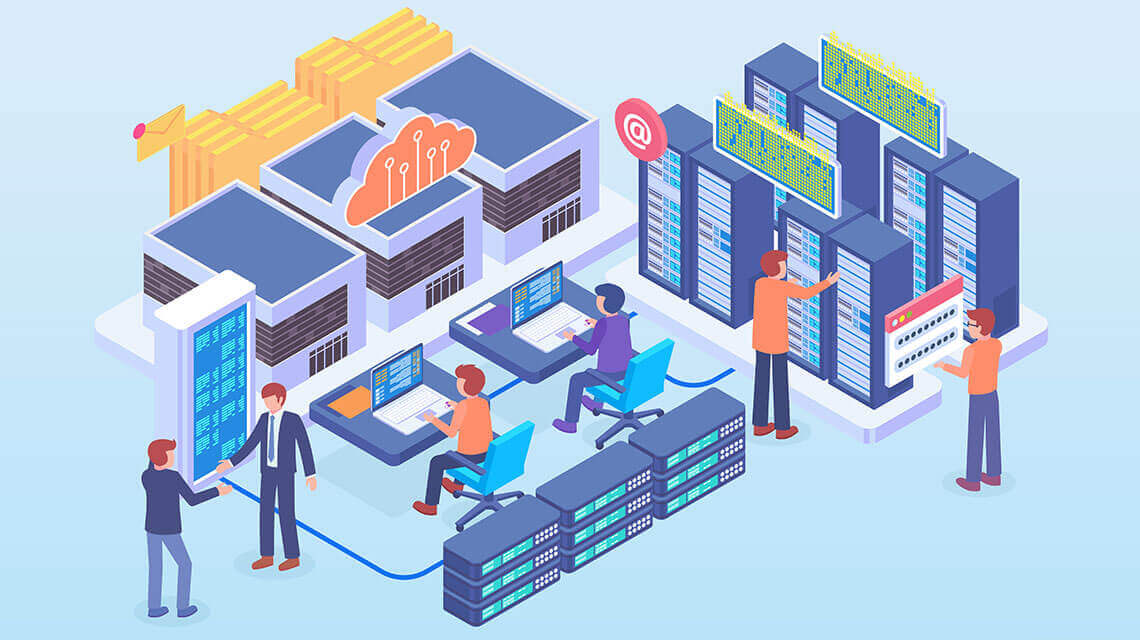
A web server is a computer system that delivers web pages to the users who request them. When a user requests a page from a web server, the server sends the page back to the user’s browser. This process is called HTTP (Hypertext Transfer Protocol).
There are many different types of web servers, but the most popular ones are Apache and Nginx. Apache is a popular open-source web server that was created in 1995. Nginx is a popular high-performance web server that was created in 2004.
Basic hosting environments
There are three main types of web hosting environments: shared hosting, VPS hosting, and dedicated hosting.
Shared Hosting: Shared hosting is the most popular type of web hosting. It’s where your website shares a server with other websites. This is the cheapest option, but it also has the least amount of resources. This means your website will be slower and may not be able to handle as much traffic as other types of hosting.
VPS Hosting: VPS hosting is where your website shares a server with other websites, but you have your own isolated environment with its own set of resources. This is a better option than shared hosting, but it’s still not as good as dedicated hosting.
Dedicated Hosting: Dedicated hosting is the best type of web hosting. It’s where you have your own server that is completely dedicated to your website. This means you have the most resources and your website will be the fastest. It’s also the most expensive option.
Advanced hosting environments
There are also more advanced hosting environments such as cloud hosting and container hosting. Cloud hosting is where your website is hosted on multiple servers in a network known as the cloud. This type of hosting is very scalable and can handle a lot of traffic. Container hosting is similar to cloud hosting, but it uses containers instead of virtual machines. Containers are more efficient because they use fewer resources and can be configured to use more resources when needed.
Managed hosting environments
Managed hosting is a type of hosting where the host takes care of all the maintenance and updates for you. This is a good option if you don’t have time to manage your own server. Managed hosts typically charge a monthly fee in addition to the cost of your hosting plan.
Skill #4: Web developers should have strong problem-solving skills
Web development is all about solving problems. As a web developer, you will encounter many challenges while building websites. You need to be able to think critically and solve the problems you run into with programming.

It is crucial to think outside the box and develop innovative solutions to these problems. If you can’t think of a solution, don’t be afraid to ask for help. There are plenty of online resources and forums where you can get help from other developers.
Skill #5: Web developers should have strong attention to detail
Attention to detail is essential in web development. One misplaced character or incorrect line of code can break an entire website. As a web developer, it is necessary to see the big picture and pay close attention to what you are doing.
The coder must take into account multiple factors – syntax validation (correct format), runtime logic (correct sequence of operations), memory and resource usage, portability, maintainability, compatibility with other code, and error handling.
Skill #6: Web developers should have strong communication skills
Web developers must have strong communication skills. This goes beyond simply being able to write code comments. As a web developer, you will need to communicate with clients, team members, and other stakeholders.

You need to be able to explain your code in a clear and concise way so that others can understand what you are doing. You also need to be able to listen to feedback and make changes accordingly. Strong communication skills are essential for any web developer.
Skill #7 Web developers need to stay up to date with the latest technologies
Finally, web developers need to be patient and have a willingness to learn. The coding world is constantly changing, so it is vital to be able to adapt and learn what new things come out. Web development is a constantly-evolving field. As new technologies emerge, successful web developers need to stay updated on what’s new and changing. This can be done by reading blog posts, attending webinars, watching tutorials, etc.
Wrapping Up
Now that you know what it takes to be a coder, the different types of web developers, and what tools can help get the job done, what will your next step be? Will you learn a different programming language like Java or Python, hone your front-end skills with CSS, or learn to use JavaScript libraries such as jQuery and React.js? The possibilities are endless!
Regardless of what direction you decide to go, I hope this post was helpful. Please share it with someone who could benefit from the information. And if you have questions or need more info on what’s covered here, don’t hesistate to leave a comment below.
Thanks for reading!
